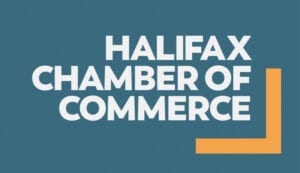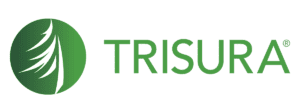Not-For-Profit Organization

NFPO Insurance for Halifax Chamber Members
Halifax is home to not-for-profit organizations (NFPOs) that play a vital role in our community. That’s why Bauld Insurance partnered with Trisura Guarantee Insurance to design an insurance program specifically for NFPOs. This is an exclusive program for Halifax Chamber of Commerce members.
Operating an NFPO involves a particular set of risks and exposures. That’s why you need enhanced insurance coverage and support to meet the requirements of managing an NFPO.


KEY EXPOSURES
- Employment practice liabilities, such as wrongful dismissal suits
- Board of director and shareholder exposures
- Competitor claims like contract disputes, false advertising or copyright infringement
PROGRAM BENEFITS
- Enhanced insurance coverages and endorsements protecting the NFPO, staff and volunteers
- Dedicated legal and HR support helpline
- Discounted policy rates
- Locally based customer service
A Dedicated Legal and HR Support Helpline.
Each insurance policy includes unlimited access to complimentary legal and HR assistance. This unique service provides access to certified human resources specialists and lawyers who can provide advice to help minimize potential risks. Here are some challenges and questions this service could answer.
ACCIDENTAL INJURY AT WORK
An NFPO that helps build and repair homes for low-income families had an unfortunate incident. The homeowner accidentally hit a ladder, causing the volunteer to fall and injure themselves.
The charity wants to know if they face potential liability issues. Can they take legal action against the homeowner on behalf of the volunteer?
VOLUNTEER ACCUSED OF HARASSMENT
An NFPO supporting youth poverty uses volunteers to supplement their regular employee workforce. Staff members claim one volunteer keeps harassing some teenagers in the organization’s communal space.
The manager needs to know what steps should be taken. Can she dismiss the volunteer without exposing the organization to possible slander charges?
NFPO Insurance: Frequently Asked Questions
-
-
How do the duties of NFPO Board members impact insurance?
-
To avoid liability risks, a director must demonstrate that they have acted with due diligence in discharging these duties. However, standards vary in different provinces depending on whether common or statutory law provisions apply and are different in application to charitable corporations and trusts. Under other statutes, higher standards have been applied to the application of care for the fiduciaries of trusts, into which category directors of community foundations fall, than for those of non-profit or for-profit corporations.
-
-
-
How to "exclusions" impact an Insuring Agreement?
-
Insuring agreements define who and what is covered by the policy. Insuring Agreements often give a broad overview of the scope of coverage, then narrow it down in the Exclusions and Definitions sections. It’s important to read these three sections together for a clearer picture of precisely what is—and isn’t—covered to know you have the coverage you expect.
-
-
-
Are directors and officers personally liable for their actions on behalf of the NFPO?
-
Directors and officers can protect themselves against liability by staying well-informed about decisions they make or approve for the corporation. They should understand the articles and by-laws of their corporation, seek legal and accounting advice when necessary, and ensure that effective management is in place for the corporation.
Directors and officers should have personal indemnification agreements with the corporation and ensure that the corporation maintains sufficient insurance to protect them.
-
-
-
What is Directors & Officers (D&O) Insurance?
-
D&O insurance protects company officials when corporate indemnification is unavailable, whether due to insolvency or legal prohibition. D&O insurance also provides a mechanism for corporations to be reimbursed when they do indemnify their executives. D&O insurance can also protect the entity itself.
A D&O policy coverage is triggered by a claim for a loss [could be monetary or non-monetary] during the policy period that alleges an insured committed a wrongful act in their capacity as a director or officer and which is not otherwise excluded under the policy.
The policy provides defence and settlement costs also subject to policy terms.D&O Policies are written on a claims made basis, which is a different trigger than the more familiar CGL policy. Unless otherwise restricted, the policy will cover claims made during the policy period, previously unknown to the insured but where the act may have occurred in the past.
The Insurer shall have the right and the duty to defend any Claim made against the Insureds, even if such Claim is groundless, false or fraudulent.
-
-
-
What is "corporate indemnification" and how does this impact D&O Insurance?
-
Corporate officials’ front line of liability protection is indemnification. Indemnification means “to pay the costs of or to reimburse another person for costs incurred.” This is usually embodied in corporate documents such as articles of incorporation or by-laws.
Although corporate indemnification is broad, it is not unlimited. There are times when a corporation may not indemnify an individual. For a corporation to be permitted to indemnify a director or officer under the CBCA (and not-for-profit act), the following conditions must be satisfied:
- the director or officer acted honestly and in good faith with a view to the best interests of the corporation (the “Good Faith Requirement”);
- in the case of a criminal or administrative action or proceeding that is enforced by a monetary penalty, the director or officer must also have had reasonable grounds for believing that their conduct was lawful (the “Lawful Conduct Requirement”);
- the costs, charges and expenses must have been reasonably incurred; and
- the director or officer must be involved in the proceeding because of their association with the corporation or other entity.
- D&O insurance assumes the indemnity obligation of the corporation
- Covers the personal liabilities of the individual Ds and Os
- Protects the organization’s assets
- Protects stakeholder assets
- Pays defence even in a frivolous suit
- Provides access to expertise in a claim situation
- Required to attract capable Ds and Os
-
-
-
What is Employment Practices Liability?
-
Employment Practices Liability Insurance (EPLI) covers an employer’s defence costs and losses from employment-related claims, including allegations of discrimination, harassment, retaliation and unlawful termination.
-
-
-
What is Fiduciary Liability?
-
Fiduciary Liability provides coverage for the fiduciaries, directors and the corporate entity against potential liabilities which may arise from the mismanagement of an employee benefit plan.
-
-
-
Are legal defence costs included in the Limit of Liability?
-
The Limit of Liability typically includes both legal defence and settlement costs. However, this exclusive feature gives additional limits for defence costs, so the policy limit is still available for settlement costs.
The hammer clause in the policy allows the insurer to propose an amount to settle a claim out of court and avoid court proceedings. The clause stipulates that the insurer can restrict claim payments if the insured does not accept this settlement amount. When this clause is deleted, the insurer can no longer restrict claim payments.
-
The Bauld Insurance Process
When you get NFPO Insurance from Bauld, you will appreciate our Business Insurance Advisors’ and Account Managers’ depth of insurance knowledge and their personal approach.
1. Needs Assessment
Our Bauld Business Advisors, beyond being experts in business insurance, help our clients as a trusted advisor and risk management partner. Industry regulations are changing, and our Advisors take a consultative approach to ensure their business is well protected.
2. Quote and Advise
Based on your organization’s requirements, we will recommend the best coverages and endorsements to meet your unique needs.
3. Policy Sign Off
Once a policy is drafted, we will guide you through the application sign-off process, and arrange an appropriate payment plan.
4. Ongoing Support
Making an insurance claim can be daunting, let alone when it involves risk complexities that can impact your business. Our Business Account Managers actively help our business clients through the claim process. Clients receive ongoing support to ensure the coverages they have are right for their business.
Is Your NFPO Well Protected?
As a Halifax Chamber of Commerce Member, you have exclusive access to NFPO Insurance provided by our partner Trisura Guarantee Insurance. Our Bauld Insurance Advisors can help you better protect your organization.